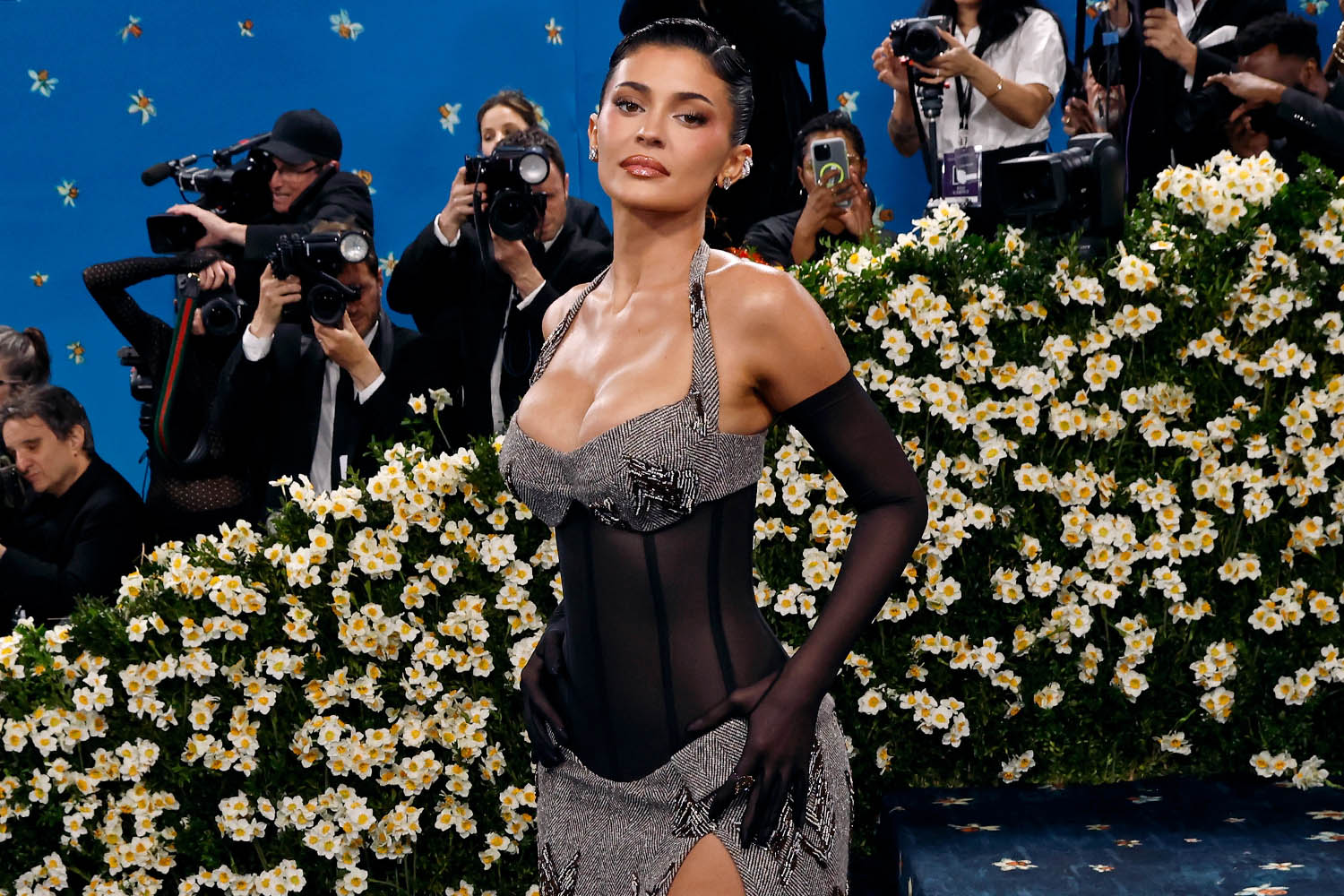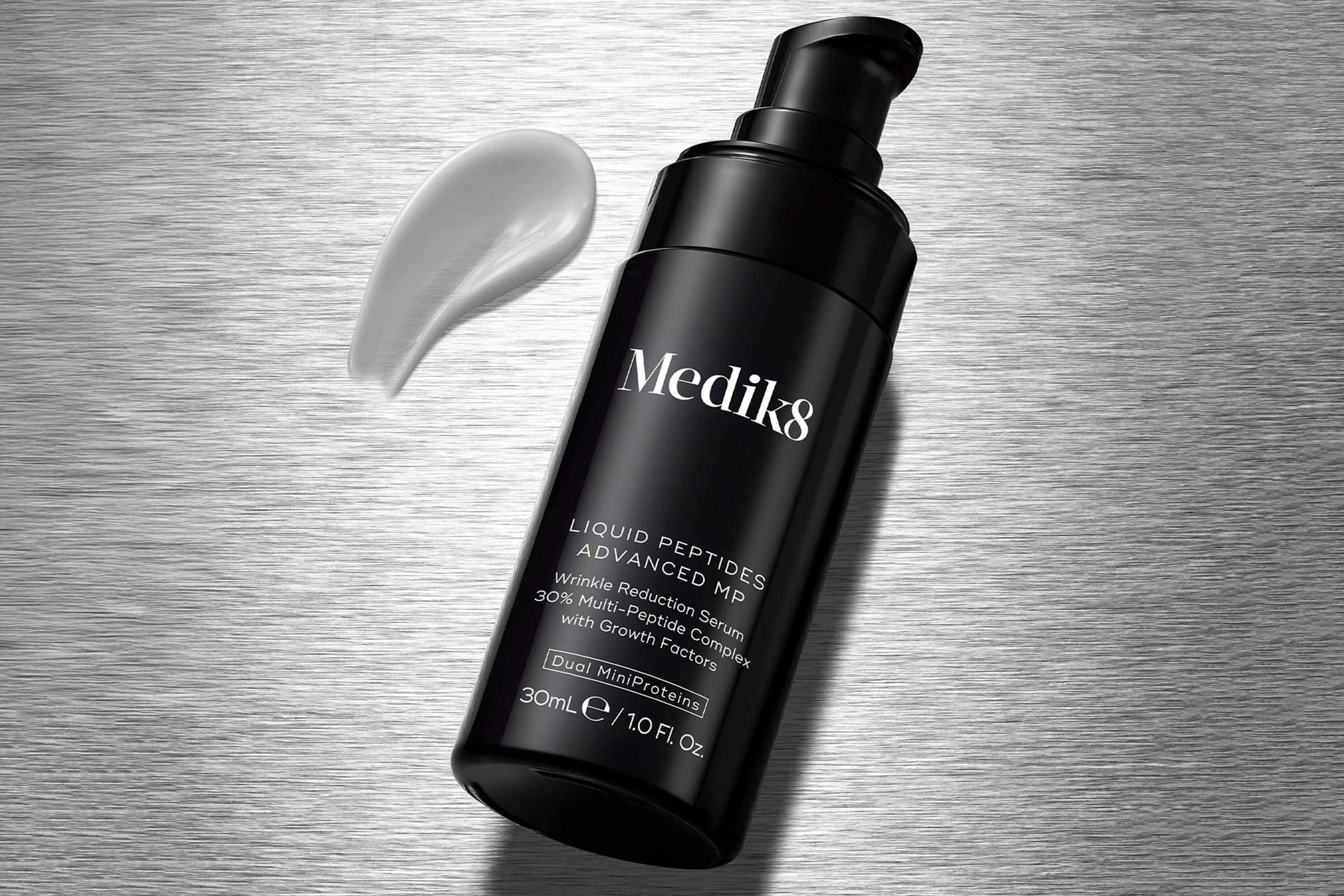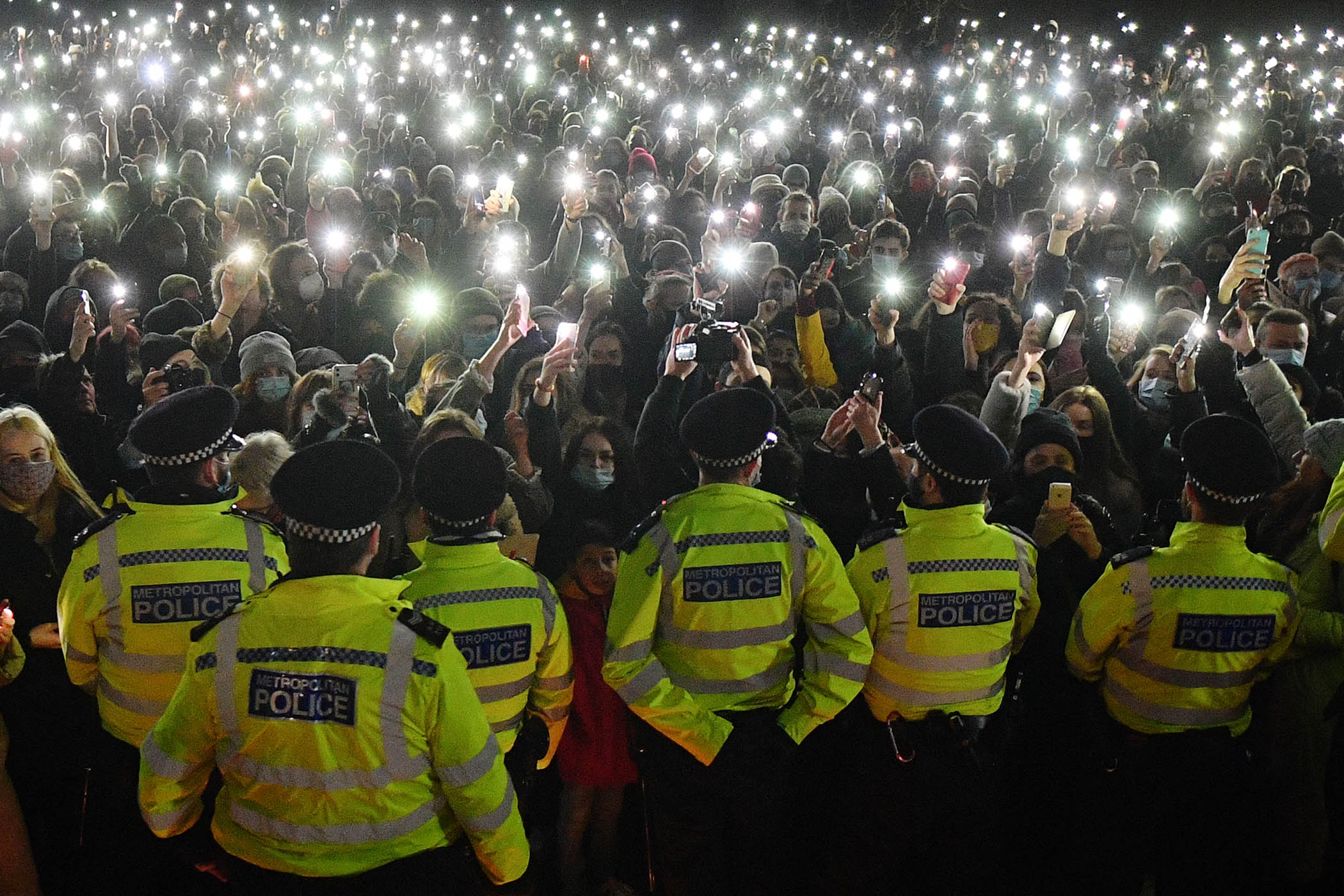It’s hard to know, in our era of over-sharing, what kind of admission from a celebrity could truly shock the public. A secret affair? A secret sister? A country music pivot? This week, Kylie Jenner went viral for one answer: giving an uncharacteristically detailed, revealing response to a TikTok user asking her to share the menu for the breast augmentation she had before becoming a parent in 2018.
“445 cc, moderate profile, half under the muscle!!!!! silicone!!!” Jenner commented on the video, also name-dropping the exact surgeon. “Garth Fisher!!! hope this helps lol.”
It’s a surprising shift in how Jenner addresses her obvious work. She spent her teens and early 20s explicitly denying she’d had anything done before later adopting an apologetic, vaguely body positive tone when copping to it as an adult. In one July 2023 episode of The Kardashians, she even spoke about her supposed regret around getting the boob job she has now shared the details for other women to replicate.
Her comment comes just a week after a similar pivot from her mother, Kris Jenner, who via a rep confirmed the name of the surgeon who did her recent viral, suspected face lift – though without going so far as to say what work she’d had done. Now after years of paying lip service to some idea of body positivity, they are freely offering something like a blueprint for you to do the same.
The KarJenners have never been the postergirls for healthy body image. Kim Kardashian famously gave an interview to the New York Times surrounding the launch of her skincare line, SKKN by KIM, in which she said she would literally “eat poop” daily in order to look younger. The whole family is responsible for popularising the impossible snatched look many young women have chased for the past decade.
However, this shift is reaching far beyond just those who previously tiptoed around the idea of body positivity. In March, Meghan Trainor, a global pop star who became famous for championing a shallow version of self-acceptance in her number one single, All About That Bass, featuring lyrics like “You know I won’t be no stick-figure, silicone Barbie doll” and “I know you think you’re fat / But I’m here to tell you / Every inch of you is perfect from the bottom to the top”, posted a paid sponsorship announcing she had gotten a breast augmentation – in partnership with the silicone implant company, Motiva. A few weeks later, she confirmed that she had also been using Mounjaro, the injected diabetes medication similar to Ozempic, to lose weight over the past year.
The singer Lizzo, whose politics around fatphobia and body image were much more developed, has spent much of the past 12 months tracking her own weight loss online, giving it the careful label of “my weight release journey”.
You hardly need to look to celebrities to see the reverberation: influencers – both those dedicated to promoting narrow beauty standards and those who have simply had work done – are constantly sharing their surgical histories under the guise of transparency.
SkinnyTok, a corner of the internet proudly promoting ways to make women’s lives revolve around gruelling exercise regimens and eating disorders, is thriving (even if occasionally under a different name to avert certain geographic bans). There has been growing, suffocating noise online “celebrating” older and middle-aged celebrities who appear to have had work done, such as Anne Hathaway, Lindsay Lohan and of course Kris Jenner.
This tells young women to do, pay, nip, tuck and change whatever it takes to fit an image of hyperfemininity
This tells young women to do, pay, nip, tuck and change whatever it takes to fit an image of hyperfemininity
Now, invasive, expensive, regular work in pursuit of agelessness and being skinny – even for those in their teens and 20s with a low BMI – has been normalised. The internet is rife with tips for boob jobs, BBLs, preventative botox, strategic filler, brow lifts, cat eye lifts, buccal fat removal, targeted at and promoted by women under 30. But after a decade of body positivity, why are we seeing what feels like a 180?
Newsletters
Choose the newsletters you want to receive
View more
For information about how The Observer protects your data, read our Privacy Policy
It’s not a coincidence that this is happening in the wake of a right-ward lurch in politics and culture globally in the past two years. Anti-feminism has been able to worm its way into mainstream popularity, in part taking advantage of the superficial aims of the commercialised body positivity movement and choice feminism, the impacts of which have proved themselves to be fundamentally brief and flimsy.
It has brought with it a renewed, reactionary valorisation of whiteness, gender conformity, beauty and thinness – alongside a return to traditional gender roles, where the rise of toxic masculinity is bolstered by adult women being infantilised (and infantilising themselves) with the refrain, “I can’t do it, I’m just a girl!” All together this lands us on a turbo-charged path telling young women to do, pay, nip, tuck and change whatever it takes to fit an image of hyperfemininity.
This trend very loudly protests that, in spite of these plainly misogynistic roots, the constant online maelstrom pushing tweakments, maintenance and cosmetic surgery is actually just openness. That it is an antidote to the long-closed doors around what secretly goes into meeting increasingly narrow beauty standards and that women like Kylie Jenner are now “helping” others to achieve the body they want by not hiding the work required to get it.
But the reality is more complicated. Women are right to feel pummelled with mangled messages about body image since 2010, where the surface-level language of the body positivity movement told us – through marketing campaigns and brand identities – that we were loved at any size, all while diet culture continued to thrive under the euphemistic banner of “wellness”. The dirty trick of this era wasn’t just its shallowness, but the smoke and mirrors from celebrities who publicly pushed body acceptance while continuing with treatments and calorie counting they could publicly deny (rebuffing any accusation as sexist in the first place). We were told that we should feel empowered to have the body we want – even if that included ones which were underweight, only possible via surgery and were fed to us through reality TV and Instagram.
Amid some sincere efforts at change, and criticism from actual feminists, it’s understandable why some women see someone like Kylie Jenner openly stating her exact work as an improvement on this conflicted messaging. Why, even, her transparency might look something like support. (It is worth noting that “some” is the operative word – many women, young and old, continue to seriously reject and retaliate against this noise.)
But the reality of what is happening here is also much simpler than these arguments suggest. It is a way for the culture to say what it has always wanted to all along: now that you have all the information, you are the only thing keeping you from being hotter. It’s not help, it’s not body positive, it is the creeping misogyny doubling down and getting to come out in full force once again. It is a wolf in wolf’s clothing.
Photograph by Taylor Hill/Getty



